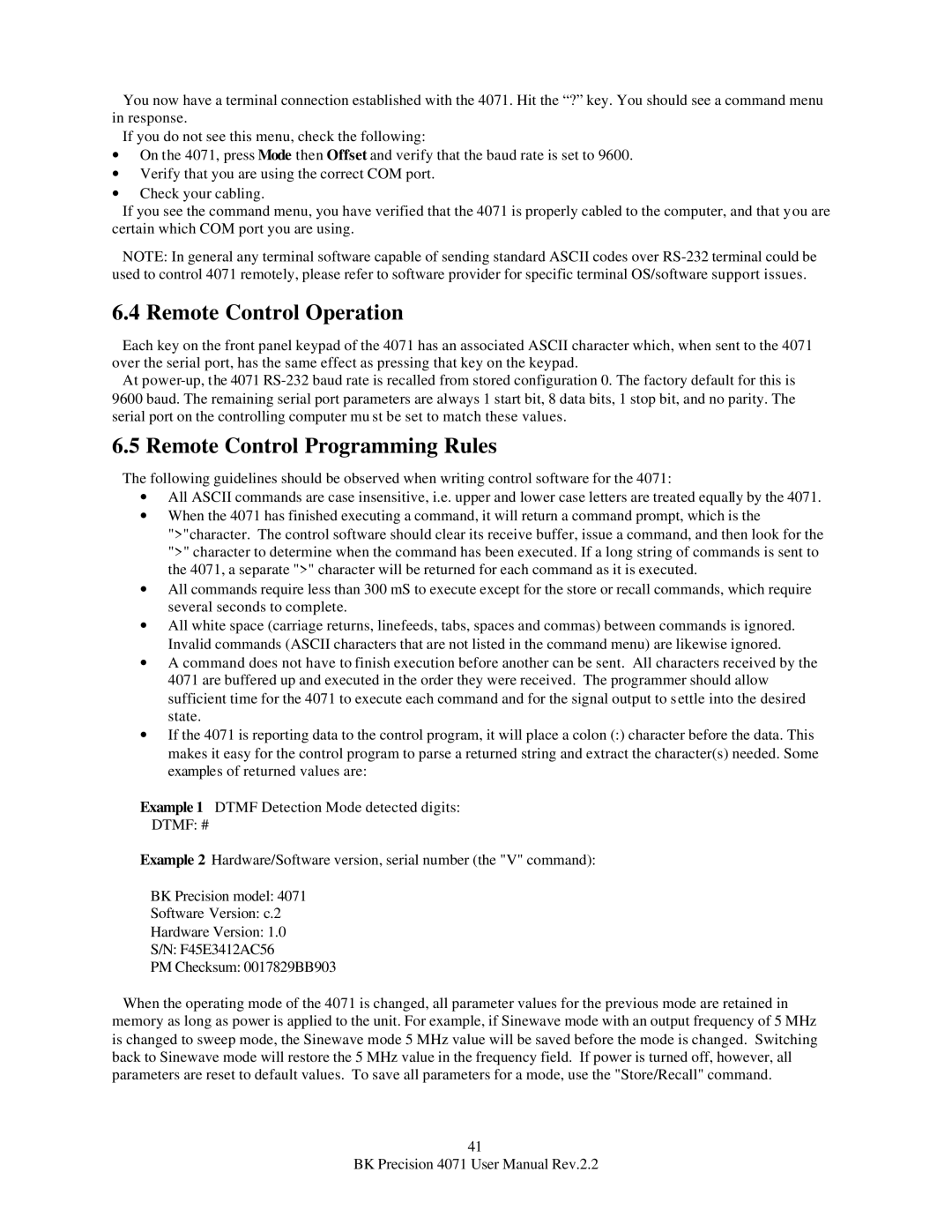You now have a terminal connection established with the 4071. Hit the “?” key. You should see a command menu in response.
If you do not see this menu, check the following:
∙On the 4071, press Mode then Offset and verify that the baud rate is set to 9600.
∙Verify that you are using the correct COM port.
∙Check your cabling.
If you see the command menu, you have verified that the 4071 is properly cabled to the computer, and that you are certain which COM port you are using.
NOTE: In general any terminal software capable of sending standard ASCII codes over
6.4 Remote Control Operation
Each key on the front panel keypad of the 4071 has an associated ASCII character which, when sent to the 4071 over the serial port, has the same effect as pressing that key on the keypad.
At
6.5 Remote Control Programming Rules
The following guidelines should be observed when writing control software for the 4071:
∙All ASCII commands are case insensitive, i.e. upper and lower case letters are treated equally by the 4071.
∙When the 4071 has finished executing a command, it will return a command prompt, which is the ">"character. The control software should clear its receive buffer, issue a command, and then look for the ">" character to determine when the command has been executed. If a long string of commands is sent to the 4071, a separate ">" character will be returned for each command as it is executed.
∙All commands require less than 300 mS to execute except for the store or recall commands, which require several seconds to complete.
∙All white space (carriage returns, linefeeds, tabs, spaces and commas) between commands is ignored. Invalid commands (ASCII characters that are not listed in the command menu) are likewise ignored.
∙A command does not have to finish execution before another can be sent. All characters received by the 4071 are buffered up and executed in the order they were received. The programmer should allow sufficient time for the 4071 to execute each command and for the signal output to settle into the desired state.
∙If the 4071 is reporting data to the control program, it will place a colon (:) character before the data. This makes it easy for the control program to parse a returned string and extract the character(s) needed. Some examples of returned values are:
Example 1 DTMF Detection Mode detected digits:
DTMF: #
Example 2 Hardware/Software version, serial number (the "V" command):
BK Precision model: 4071
Software Version: c.2
Hardware Version: 1.0
S/N: F45E3412AC56
PM Checksum: 0017829BB903
When the operating mode of the 4071 is changed, all parameter values for the previous mode are retained in memory as long as power is applied to the unit. For example, if Sinewave mode with an output frequency of 5 MHz is changed to sweep mode, the Sinewave mode 5 MHz value will be saved before the mode is changed. Switching back to Sinewave mode will restore the 5 MHz value in the frequency field. If power is turned off, however, all parameters are reset to default values. To save all parameters for a mode, use the "Store/Recall" command.
41
BK Precision 4071 User Manual Rev.2.2
